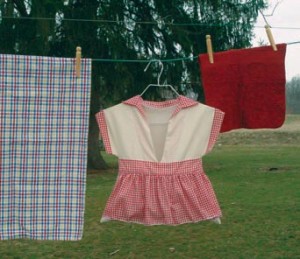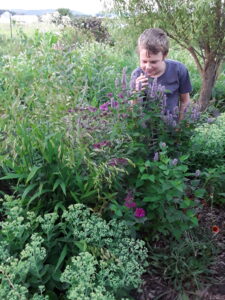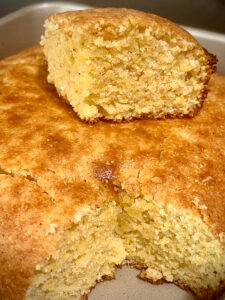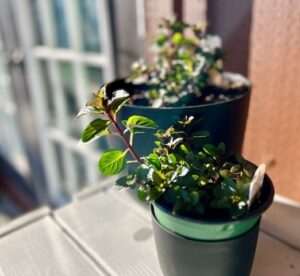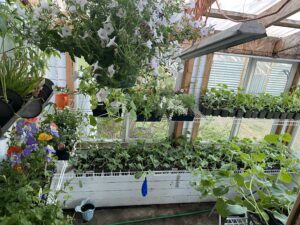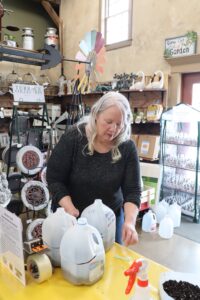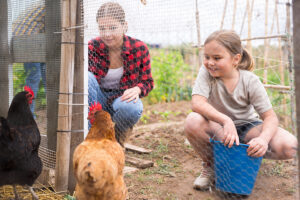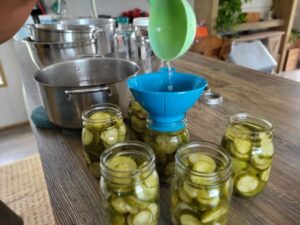“Frugality is such an ugly word,†reads a change purse being sold in the Brooklyn Museum shop. I couldn’t resist  being amused. It’s hip and wry and urban and chic. I had to buy it because it is contrary to my life in the country.
being amused. It’s hip and wry and urban and chic. I had to buy it because it is contrary to my life in the country.
The word sent me scurrying to my Chambers Etymological dictionary. The word so associated with avoiding waste and saving has its roots deep in what we find antithetical to its current usage. Tracing it through various Latin cases it ultimately rests in words originally meaning fruit, profit, and value.
Now frugal doesn’t seem an ugly word at all! It’s lost some of its repressive Puritanical tarnish. When we’ve polished it off it is deeply rooted in abundance. This makes me smile.
For me frugality – in both its saving and abundant forms – is rooted with arboriculture. Trees take a certain amount of nurture and patience but they give back so much. They last long after us.
So when I think of frugal acts to incorporate into our lives I like to think – root, trunk, branch. This suggests to me that various items need ‘double up’ or multitask for us so that they have a second life beyond their initial purpose.
Consider newspapers. Many people read online but there is still nothing to beat reading the funnies aloud to your kids. People acquire newspapers for many and widely various reasons. They use it to line the cat litter tray or line wastebaskets. But the most frugal use for newspaper to my mind is to use it in the garden.
Newspaper can be scrunched up in balls to add to the compost bin in between those wet ‘green’ layers of tea bags, vegetable peelings and coffee grounds. But you can also use it to save weeding labor.
Try this on the next gardening day when you mow the lawn. Save the grass cuttings. Then weed an area and spread dampish newspaper in the weed free area. Cover it with the grass cuttings. You get a four for one with this – you reduce the need to weed by mulching; you save on water as mulching will retain moisture; you recycle waste paper; the paper and grass cuttings will compost down and feed your plants.
Now that is really frugal!
Not everyone has a garden so here are a few frugal ideas suitable to every domestic setting.
1) Carpool – share the cost of gasoline or rotate the driving equally. Everyone will save money on fuel and reduce CO2 emissions by keeping three other cars off the road. It will also reduce traffic congestion.
2)  Be strategic with your car journeys – This is one for the list maker. You need to make lists of what supplies you need from what town and then make one trip and kill as many tasks with the single journey.
Buddy up and share journeys. If a neighbour routinely visits a nearby town and you need to make the occasional trip ask for a lift and offer to share the costs.
3) Grow Your Own – You don’t even need to have a garden – anyone can sprout seeds! I’m particularly fond of alfalfa in salads and it gives an amazing fresh taste to winter salads when you can’t grown you own leafy greens. It will be far cheaper to grow your own on the windowsill than to buy it at a supermarket with their mark up and overheads. Also consider growing herbs on the windowsill from seed, as these tend to be expensive at supermarkets and garden centres. You can even grow lavender (with patience) from seed and keep it indoors to gently scent and freshen your living space air. Check out how much those aerosol sprays cost. Then check out what a packet of lavender seeds costs. Contrast and compare! You can even grow some of your houseplants from scratch. Avocado plants take a while to sprout but are hardy. You can also grow citrus plants from seed, coleus and many other plants that thrive indoors from seed. If you have a warm sunny windowsill then you can propagate your own houseplants.
4) Houseplant Food– Stinging nettle and comfrey leaf are great plant food. If you have access to wild sources (do wear thick gloves if you are picking stinging nettle – for the obvious reasons) you have free plant food. Or you can get nettle or comfrey tea bags in wholefood stores. Just steep the bags in a quart jar of boiling water for 48 hours and then use to feed your houseplants during the growing season. Dilute the brew when watering it in to your plants- a 1:4 ratio of tea to water. The teabag plant food will very likely work out cheaper than non-organic proprietary brands.
5) Make Your Own – Homemade yogurt and mayonnaise are easy enough to make with either the low-tech methods or using electrical gadgets. The equipment outlay is modest and you will save money. I can make a litre of organic yoghurt for €1. They charge for 700ml well over that mark in the shops. Likewise, homemade mayonnaise is another frequently used condiment that will probably save 25% on the retail cost. If I can, I use organic eggs and organic oil and then I can make a whopping 50% savings. If you are not the best organised shopping list maker you also save on the car fuel for that short, last minute trip to the shop to grab one of these essential items that you suddenly find have run out.
6) Use your vacuum cleaner sparingly – Because we have hairy dogs and cats we have been reducing carpeting in our house. This means that a quick sweep with a good old-fashioned broom will generally be enough of a lick and a promise over a week. I also find that men will more readily wield a broom than a vacuum cleaner. Not sure what this has to do with the Y chromosome but if this is a deal breaker for more gender equal distribution of household labour then I can live with it! You will not only save on electricity but you will have more equable domestic sharing of tasks. Throw rugs can often do with just a good shake or a thwack with the broom while pegged out on the clothesline. You may still need to use a vacuum cleaner for some tasks but you will reduce your reliance on an electrical appliance.
Each simple domestic act sows and nurtures a tree of prosperity.Frugality is all about what you value and adding value.

